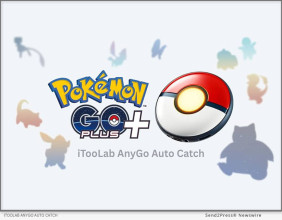Highlights
- Kroger (NYSE:KR) posts higher earnings in recent quarterly report
- Share transactions shift ownership as trading activity rises
- Institutions maintain sizable positions across the retail segment
Kroger Co. (NYSE:KR), one of the largest players in the American grocery retail landscape, operates within the consumer staples sector. As a component of the s&p 500 futures, the company's performance offers insight into broader retail trends and consumer behavior across domestic markets. Its extensive network of supermarkets and pharmacy outlets supports consistent operations throughout a wide economic range.
The company’s footprint covers numerous store banners, supported by a strategic approach to private label growth, digital integration, and supply chain management.
Quarterly Performance Reflects Strength
Kroger delivered a strong quarterly earnings outcome, surpassing prior expectations. The results showed an increase in profitability metrics, with reported earnings per share above recent projections. This performance was achieved even as revenue experienced a slight reduction compared to previous periods.
Return metrics indicated efficient capital use, while profit margins held steady, contributing to broader confidence in the company’s financial performance. The reported figures reflect a resilient model in a competitive and evolving sector.
Transactions
A wave of share transactions occurred among senior executives, with sales executed by multiple members of Kroger’s leadership team. These transactions affected total ownership figures and added a layer of activity to recent market movements.
While such trades can influence interpretation of internal confidence, the underlying fundamentals continue to anchor the company’s value. Corporate filings confirmed that these changes resulted in shifts in direct shareholdings across leadership roles.
Institutional Remain Substantial Across Sector
A majority of Kroger’s outstanding shares are held by institutions, reflecting ongoing interest from asset managers and funds aligned with large-cap consumer names. Recent activity in the institutional space includes both new entries and expanded positions, illustrating continued engagement from professional capital entities.
This segment of shareholders often supports longer-term positions and shows alignment with steady performance in defensive market segments. The concentration of institutional ownership underscores broader acceptance of Kroger’s position within the consumer goods ecosystem.
Market Activity and Stock Dynamics
Recent trading activity saw Kroger’s stock advance within its historical range, approaching levels previously recorded over the last twelve months. These price movements coincided with financial reporting dates and publicized insider share sales.
Volatility remains moderate for the stock, with consistent trading volume reflecting regular market interest. Price adjustments by financial institutions and ongoing earnings announcements contribute to share performance visibility across trading sessions.
Business Operations
Kroger’s business strategy includes supermarket (NYSE:KR), fuel centers, and pharmacy operations, supported by a growing emphasis on delivery and digital platforms. The company's private label offerings serve as a cornerstone of margin management, while food manufacturing capabilities support internal supply control.
The diversified approach allows the company to adapt to changing consumer preferences, offering flexibility during economic shifts. This operational model positions Kroger within the stable consumer staples segment under the broader Nyse Composite framework.





